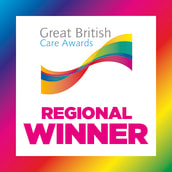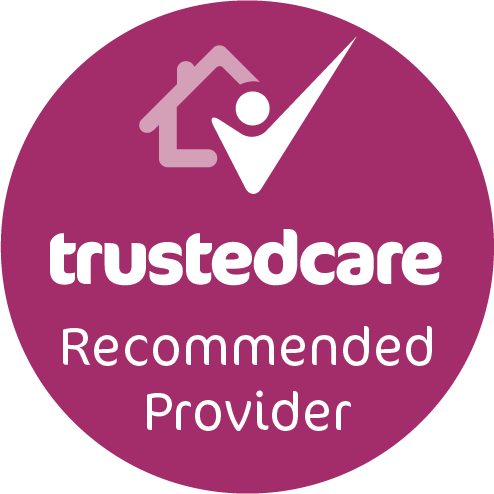It can feel like a slippery slope once an elderly parent takes a fall at home. What may have initially been a minor injury, can lead to; repeated visits to the hospital, an increase in medical prescriptions and the sense that their overall health is deteriorating.
A once independent person may begin to appear frail and vulnerable as one fall seems to lead shortly to another. It can be easy to assume that an elderly parent is now unable to care for themselves when you find yourself in a situation such as this. Often, this is when relatives begin to consider their care choices and assume an elderly person is unable to live independently anymore.
Slips and falls affect everyone at some point in their life and can result in any age requiring medical attention. If you have cared for a person post-treatment, then you’ll know it can be a testing time no matter how old they are. A fall for a younger person might result in a bruise or broken bone at worst and a bruised ego at best. But for a 70+ person, a fall may result in a more complicated injury that takes longer to heal.
Elderly people are also more at risk during any length of hospital stay as they are more prone to infection and being overlooked in busy and overrun wards.
Falls at home is one of the leading deciding factors to putting a parent into care. But before any decisions are made, there are some important facts to consider.
- Firstly, many people are unaware that falls at home may be caused by an underlying infection:
Infections lower blood pressure and cause dizziness. A person suffering from an underlying infection, may not complain of any symptoms and may not think to go to their GP until they take a fall. Researchers at Massachusetts General Hospital found that infections were the reason behind a study of 161 falls patients. ‘Of those, 44 per cent had a urinary tract infection, 39 per cent had a bloodstream infection, 23 per cent had a respiratory infection and nine per cent had an infection of the heart valve.’
- Secondly, medicines prescribed to treat infections, have side effects which increase an elderly person’s risk of falling.
These side effects include dizziness, drowsiness and nausea. This includes antibiotics and strong painkillers. So whether an elderly person is taking medicine for an infection, or pain medication for a fracture, both increase their risk of falling at home.
Hospitals are quick to discharge patients without fully informing them or their relatives that medication can cause side effects which affect their general well being. Common side effects of antibiotics and pain medication include drowsiness and dizziness. This makes elderly patients at higher risk of repeat falls and repeat injury. Particularly if they are returning home and live alone.
In addition, anti-depressants are often prescribed to people with dementia, which is prevalent amongst the elderly. Anti-depressants also present side effects such as dizziness.‘One class of antidepressants seemed to increase the risk of a fall even more, with a 66 per cent increase in falls amongst those on selective serotonin reuptake inhibitors (SSRI).’
Considering these factors, it is easy to mistake an elderly person who is presenting side effects of drowsiness and dizziness as someone who is forgetful and acting unusually and therefore unable to care for themselves.
Furthermore, it’s easy to see how the health of an elderly patient can deteriorate quickly once discharged home.
It is important to note that elderly patients are at their most vulnerable after treatment in hospital. There are a number of reasons for this. If an elderly person sustained an injury in their initial fall, this will reduce their ability to move around unaided. It can affect simple tasks such as getting in and out of bed and more private matters such as getting washed and going to the toilet.
If they have an underlying infection, they may require more rest and be taking medication that affects their balance which, alongside their mobility restraints, makes them more unsteady on their feet. The drowsiness and dizziness they may experience from new medication may cause them to forget when they last took their medicine and how much of it they took. Resulting in them either not taking any medication at all and hindering their recovery, or taking too much and double dosing.
Finally, underlying infections, rehabilitation and medication require patients to eat well and drink more fluids. Not doing so, results in constipation and dehydration. All of which, contribute to the complications that elderly people face during rehabilitation which elongate their return to good health.
So what should you do if your elderly parent has recently taken a fall?
Taking a little time off work (if you can) to either stay with your parent or pop in more during the day can be a great starting point to ensuring a good recovery. There is more to caring for someone than you might think, however. It can be a huge task to take on as a friend or relative, particularly if you have normal work and social schedules. It can also be difficult to transition from the relationship of son or daughter to the professional carer and is not uncommon to lead to disagreements and difficulty within this new relationship.
It is important that a few simple things such as medicine dosages, fluid intake and assistance getting about are monitored, particularly in the first few weeks post-treatment. This can be difficult to stay on top of if you’re not around most of the day. Particularly if an elderly person is suffering from dizziness and has a high chance of falling.
Even if chores and tasks are divvied up between a few family members and friends, it can be hard to know how much medicine was taken or even how much water that person may have drunk during the day.
Inviting a professional carer to provide care is a more practical idea. Hourly carers, also known as domiciliary carers, can provide a few hours of care as agreed, but with elderly parents who are suffering from dizziness, respite carers would be a more preventative option to ensure a full recovery, Respite carers can provide care 24/7 for an agreed number of weeks until they make a full recovery. Having a carer for this length of time over a day, means they can take on the responsibility of monitoring medicine dosages, fluid intake and daily chores including helping to get washed and dressed. There are a number of times a person will need help moving from one place to another during the day, particularly to go to the toilet or make a cup of tea. Having a respite carer during this time can ensure repeat falls are avoided.
Your parent might be opposed to inviting a carer into their home as this may threaten their idea of independence but it may help them to know a respite carer is only temporary. A full-time respite carer can help with simple tasks a person can’t cover by popping in 2 or 3 times a day. A respite carer is also only required to support someone through their rehabilitation which means progressing towards a person’s re-independence is key. Respite carers are only temporary for a matter of 2 weeks or longer if required. Once an elderly person is beginning to feel better, this care can reduce to a few hours a day or week, until the person is able to live entirely independently again.
Find out more about how ENA Care Group could support you or your family by calling 08004 334 413 or emailing care@ena.co.uk.
















